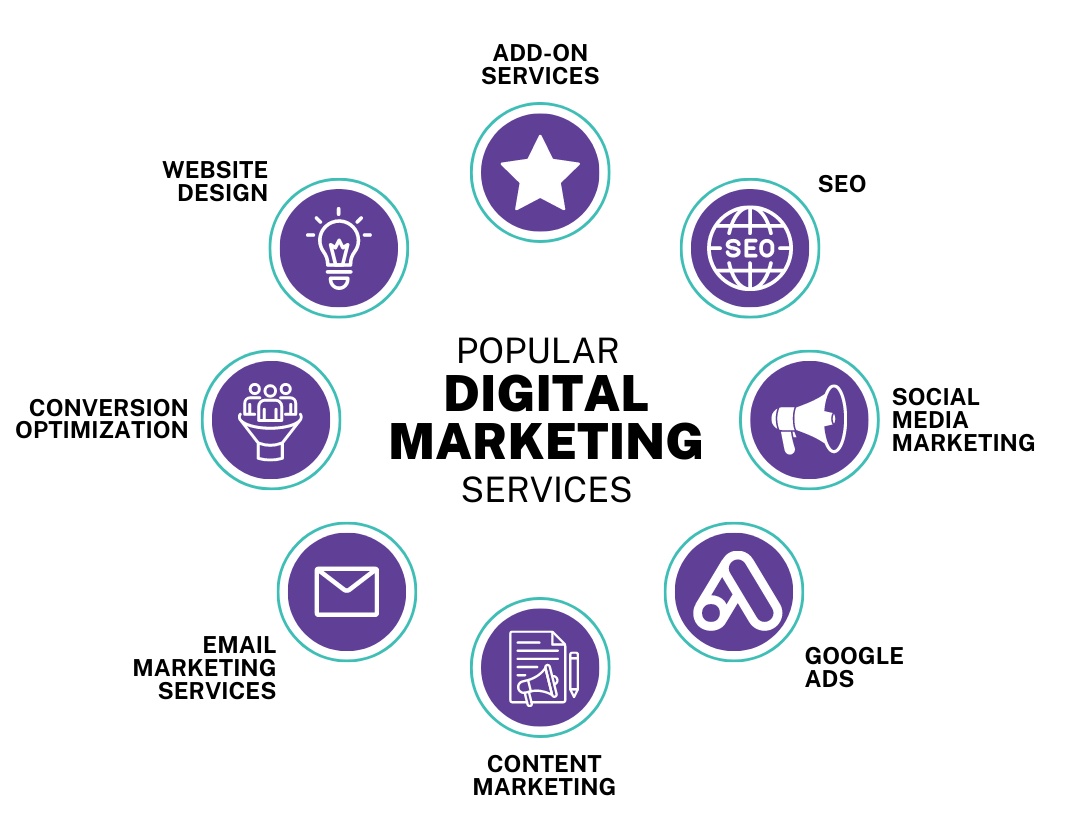The digital marketing landscape is a whirlwind of innovation. What worked yesterday might not resonate tomorrow. So, what does the future hold for those navigating this ever-evolving world? Buckle up, because we're peering into the crystal ball to unveil some of the most significant trends shaping the future of digital marketing.
1. The Rise of Personalization: From One-Size-Fits-All to Hyper-Targeted Experiences
Gone are the days of generic marketing messages. The future is hyper-personalized. Imagine content, ads, and recommendations tailored to individual needs and preferences. This is where AI comes in.
AI-powered personalization engines will analyze vast amounts of customer data, including purchase history, browsing behavior, and social media interactions. This allows marketers to create laser-focused campaigns, predicting customer needs and delivering content they crave at the right time and on the right platform.
2. The Age of Automation: Freeing Up Time for Strategic Thinking
Repetitive tasks like ad scheduling, social media posting, and email blasts will fade into the background. Marketing automation platforms will take over, allowing marketers to focus on the bigger picture.
Imagine automating entire customer journeys, from initial lead capture to nurturing and conversion. This frees up time for strategic planning, content creation, and building meaningful relationships with customers.
3. Voice Search: Talking to Your Customers
Conversations are the new clicks! Voice search is exploding, with platforms like Siri, Alexa, and Google Assistant becoming ubiquitous.
Marketers will need to adapt their content to voice commands and questions. Long-tail keywords and natural language optimization will be crucial for ranking well in voice search results. Think of yourself creating content that answers potential customer questions in a conversational tone.
4. The Power of AR & VR: Immersive Experiences Take Center Stage
Augmented Reality (AR) and Virtual Reality (VR) will revolutionize the way customers interact with brands. Imagine trying on clothes virtually, visualizing furniture in your home, or attending a product launch event without leaving your couch.
AR and VR offer immersive experiences that capture attention, enhance brand storytelling, and drive conversions. This technology holds exciting possibilities for e-commerce, education, and product demonstrations.
5. The Evolving Social Media Landscape: New Platforms and Shifting Trends
Social media is constantly evolving, with new platforms emerging and existing ones morphing.
While stalwarts like Facebook, Instagram, and YouTube will likely remain relevant, future dominance could come from unexpected sources. Marketers need to be adaptable, constantly monitoring social trends and being ready to pivot strategies to engage with audiences on new platforms.
6. The Rise of Micro-Influencers: Authenticity Reigns Supreme
Forget celebrity endorsements – the future belongs to micro-influencers. These are individuals with dedicated, engaged communities, typically in a specific niche. Partnering with micro-influencers fosters trust and authenticity, resonating better with target audiences than generic celebrity endorsements.
The key lies in finding influencers who align with your brand values and whose audience reflects your ideal customer profile.
7. The Growing Power of User-Generated Content (UGC): Harnessing the Collective Voice
Customers trust other customers. User-generated content (UGC) – like customer reviews, testimonials, and social media posts – carries immense weight.
Marketers will need to develop strategies to encourage UGC creation, fostering brand loyalty and building trust. Think branded hashtag campaigns and user-generated content contests to ignite engagement.
8. The Cookieless Future: Embracing Privacy-Centric Strategies
Privacy regulations are evolving, and third-party cookies are on the way out. This makes targeted advertising more challenging.
Marketers will need to focus on first-party data collection, building email subscriber lists, and leveraging loyalty programs to gather customer insights. Contextual targeting, based on content and user intent, will also play a vital role.
9. The Importance of Data Security: Building Trust in a Digital World
As data becomes increasingly valuable, safeguarding it is paramount. Consumers prioritize data security, and breaches can severely damage brand reputation.
Marketers need to invest in robust cybersecurity measures to protect customer data and build trust. Transparency and clear communication about data practices are also essential.
10. The Integration of AI and Machine Learning: Unlocking the Power of Marketing Automation
Artificial intelligence (AI) and machine learning (ML) will continue to transform how we market. Imagine AI-powered chatbots providing personalized customer service 24/7, or ML algorithms optimizing ad campaigns for maximum return on investment (ROI).
This integration will lead to smarter, more efficient marketing strategies that cater to individual customer needs and maximize campaign performance.


No comments yet